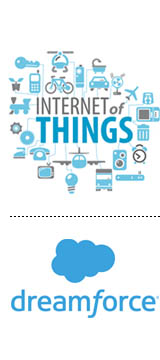 The technological problem with the Internet of Things (IoT) is that various connected devices, household appliances and vehicles all have different operating systems with different communication or data collection methods. This means they can’t talk to each other because they don’t speak the same language.
The technological problem with the Internet of Things (IoT) is that various connected devices, household appliances and vehicles all have different operating systems with different communication or data collection methods. This means they can’t talk to each other because they don’t speak the same language.
“Information isn’t valuable without an infrastructure to make it actionable in real time,” said Chan Lieu, senior legislative advisor at the law firm Venable, at AdExchanger’s Omni.Digital conference last week. Lieu previously worked for the US government, advising on policies around emerging technologies.
“Ecosystems are closed,” he said, adding that connected artifacts are proliferating, despite a lack of technological standards. “[IoT] won’t take off until we see that interoperability.”
Salesforce’s IoT Cloud, revealed Tuesday at the company’s annual Dreamforce extravaganza, is meant to alleviate that problem – at the least by bringing all those different connected items into the Marc Benioff universe. IoT Cloud is designed to catch all the little signals from various devices, websites, wearables, vehicles – basically anything connected – and process that noise to find the relevant info.
It then triggers events as needed within Salesforce’s three cloud solutions: Marketing, Service or Sales. So in theory, if you’ve got a problem with your connected car, you could receive a message on your iPhone telling you what’s wrong and where to seek help. And while you’re at the shop, how about an oil change, since you’re due for that too?
“This is a new product that will sit in front of the apps from Salesforce,” said Eric Stahl, the company’s SVP of product marketing. “The main focus is the integration with the Marketing Cloud. You can do high-volume event processing and trigger one-to-one customer journeys based on that.”
Before anyone gets too excited: Salesforce just announced the existence of IoT Cloud. The product itself is still in beta testing with a handful of clients, and the company hopes for general availability sometime next year. Participation is currently invite-only.
While Salesforce didn’t say exactly how many companies are trialing IoT Cloud, Stahl noted a few early adopters – not all of them marketers. Global manufacturing company Hexagon is using it for factory monitoring, including tracking real-time data feeds in various departments to avoid catastrophic events.
Additionally, fleet management company TeMeDa is doing in-vehicle monitoring and triggering emails or SMS messages if there are issues that need to be addressed.
And a final one: Emerson Climate Technologies is looping its connected thermostats into IoT Cloud to offer preventative services for homeowners and connect them with contractors, if need be.
Obviously, that’s a lot of data that needs to be considered, and Salesforce is still working out how to scale the platform.
“If a company wants to throw 50 billion events at this thing every day with very low latency to process all that data and trigger a case, activity, journey or email, it’s a sheer volume challenge unlike anything we’ve seen to date,” Stahl said.












